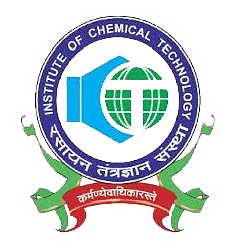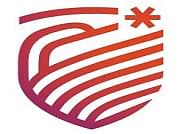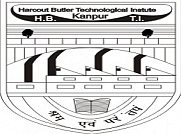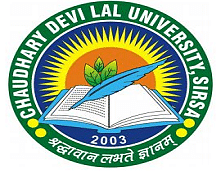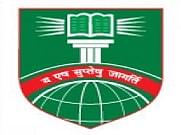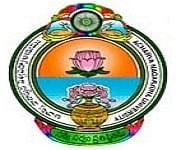Introduction about Ph. D in Yoga Education
A Ph.D. in Yoga Education from top college is an advanced academic degree program designed to provide scholars,
educators, and practitioners with in-depth knowledge and expertise in yoga
philosophy, practice, research, and education. This specialized program
combines theoretical understanding with practical application to prepare
graduates for leadership roles in academia, research institutions, healthcare
settings, wellness centres, and other related fields.
In a Ph.D. program
in Yoga Education, students delve deeply into the history, philosophy, and
principles of yoga, as well as its applications in various contexts such as
education, healthcare, psychology, and spirituality. They explore topics such
as yogic philosophy, meditation, mindfulness, anatomy and physiology,
therapeutic applications of yoga, and the integration of yoga into educational
curricula.
One of the key
components of a Ph.D. program in Yoga Education is research. Students engage in
rigorous coursework in research methodologies, statistics, and data analysis,
as well as hands-on research experiences culminating in a doctoral
dissertation. Research topics may include the effects of yoga on physical and
mental health, the therapeutic benefits of yoga for specific populations, the
integration of yoga into educational settings, or the philosophical foundations
of yoga.
Ph.D. programs in
Yoga Education often emphasize interdisciplinary collaboration, drawing from
fields such as psychology, neuroscience, education, public health, and
spirituality to provide students with a holistic understanding of yoga and its
potential applications.
Graduates of a
Ph.D. program in Yoga Education are prepared to make significant contributions
to the field through teaching, research, program development, and advocacy.
They may pursue careers as university faculty members, researchers, curriculum
developers, program directors, yoga therapists, or consultants, working to
promote the understanding and integration of yoga into diverse educational and
healthcare settings.
Overall, a Ph.D. in
Yoga Education equips students with the knowledge, skills, and credentials
needed to advance the field of yoga education, contribute to the evidence base
supporting its efficacy, and empower individuals and communities to cultivate
health, well-being, and self-awareness through the practice of yoga.
What is admission process for Ph. D in Yoga
Education ?
The admission process for Ph.D. in Yoga Education can vary depending on the specific
program and institution offering the degree. However, here's a general overview
of the typical admission process:
Research Programs: Start by researching Ph.D. programs in
Yoga Education to identify those that align with your academic interests,
career goals, and personal preferences. Look into factors such as faculty
expertise, research opportunities, program reputation, and location.
Meet Prerequisites: Ensure you meet the prerequisites for
admission, which often include a master's degree in yoga, education,
psychology, public health, or a closely related field from an accredited
institution. Some programs may require specific coursework or professional
experience in yoga or related fields.
Application: Complete the application form provided by
the institution offering the Ph.D. program. Applications are typically
submitted online through the university's admissions portal. Pay close
attention to deadlines, as they vary between programs.
Transcripts: Submit official transcripts from all
post-secondary institutions attended, including undergraduate and graduate
coursework. These transcripts should demonstrate strong academic performance,
particularly in relevant coursework.
Letters of
Recommendation: Typically,
applicants are required to provide letters of recommendation from academic
and/or professional references who can speak to their qualifications, academic
abilities, research potential, and suitability for doctoral-level study in yoga
education.
Statement of
Purpose: Write a compelling
statement of purpose or personal statement outlining your academic background,
research interests, reasons for pursuing a Ph.D. in Yoga Education, career
goals, and how the program aligns with your aspirations. This is an opportunity
to demonstrate your passion for the field and your readiness for doctoral
study.
Resume or
Curriculum Vitae (CV):
Provide a comprehensive resume or CV detailing your educational background,
work experience, research experience, publications, presentations, and any
relevant achievements or certifications.
Standardized Test
Scores: Some programs may
require applicants to submit scores from standardized tests such as the GRE
(Graduate Record Examination) or the MAT (Miller Analogies Test). However, many
programs are moving away from standardized test requirements or offering waivers
for certain applicants.
Writing Sample: Some programs may request a writing
sample, such as a research paper, academic essay, or professional writing
sample, to assess your writing and analytical skills.
Interview (if
applicable): Depending on
the program, applicants may be invited to participate in an interview as part
of the admissions process. This interview may be conducted in person, over the
phone, or via video conference.
Application Fee: Pay the application fee, if applicable, as
required by the institution.
After submitting
your application materials, the admissions committee will review your complete
application package and make decisions based on factors such as academic
qualifications, research potential, letters of recommendation, statement of
purpose, and fit with the program. If admitted, you'll receive an offer of
admission along with any relevant financial aid or funding information.
What is eligibility for Ph. D in Yoga Education ?
Eligibility criteria for Ph.D. in Yoga Education can vary depending on the specific
program and institution offering the degree. However, here are some common
eligibility requirements you may encounter:
Educational
Background: Typically,
applicants are required to hold a master's degree in yoga, education,
psychology, public health, or a closely related field from an accredited
institution. The master's degree should provide a solid foundation in relevant
disciplines and may include coursework in yoga philosophy, practice, research
methods, and education.
Academic
Performance: Applicants are
generally expected to have a strong academic record, particularly in
graduate-level coursework relevant to yoga education or related fields. This
may be evidenced by transcripts from previous academic institutions.
Work Experience: While not always required, many Ph.D.
programs in Yoga Education prefer applicants with relevant professional
experience in yoga instruction, teaching, research, program development, or
related fields. This experience might include teaching yoga classes, conducting
research on yoga, leading workshops or trainings, or working in yoga-related
organizations.
Research Experience
and Skills: Demonstrated
research experience and skills are often valued for admission to a Ph.D.
program. This might include prior research projects, publications,
presentations at conferences, or involvement in research-related activities
related to yoga or related fields.
Letters of
Recommendation: Applicants
are typically required to submit letters of recommendation from academic and/or
professional references who can speak to their qualifications, academic
abilities, research potential, and suitability for doctoral-level study in yoga
education.
Statement of
Purpose: A well-written
statement of purpose or personal statement is often required, in which
applicants articulate their academic background, research interests, reasons
for pursuing a Ph.D. in Yoga Education, career goals, and how the program
aligns with their aspirations. This is an opportunity to demonstrate your
passion for the field and your readiness for doctoral study.
Standardized Test
Scores: Some programs may
require applicants to submit scores from standardized tests such as the GRE
(Graduate Record Examination) or the MAT (Miller Analogies Test). However, many
programs are moving away from standardized test requirements or offering waivers
for certain applicants.
Language
Proficiency: International
applicants whose native language is not English may need to demonstrate
proficiency in English through standardized tests such as the TOEFL (Test of
English as a Foreign Language) or the IELTS (International English Language
Testing System).
It's important to
note that eligibility requirements can vary between institutions and programs,
so it's essential to carefully review the specific requirements of each Ph.D.
program you're interested in applying to. Additionally, some programs may have additional
requirements or preferences beyond those listed here.
What is syllabus for Ph. D in Yoga Education ?
The syllabus for Ph.D. in Yoga Education can vary significantly depending on the specific
program, institution, and the research interests of faculty members. However,
here are some common topics and areas of study that you might encounter in a
typical Ph.D. program in Yoga Education:
Yoga Philosophy and
History:
Study of classical
yoga texts such as the Yoga Sutras of Patanjali, Bhagavad Gita, and Hatha Yoga
Pradipika
Historical
development of yoga and its philosophical foundations
Exploration of
different schools of yoga philosophy (e.g., Vedanta, Tantra, Bhakti)
Yoga Theory and
Practice:
Advanced study of
yoga asanas (postures), pranayama (breath control), and meditation techniques
Integration of yoga
philosophy into personal practice and teaching
Advanced yoga
anatomy and physiology
Yoga Education and
Pedagogy:
Principles of
teaching yoga to diverse populations and settings
Curriculum
development and instructional design for yoga teacher training programs
Assessment and
evaluation in yoga education
Ethics and
professionalism in yoga teaching
Research
Methodologies in Yoga:
Quantitative and
qualitative research methods applicable to studying yoga
Design and
implementation of research studies in yoga education and practice
Statistical
analysis and interpretation of data related to yoga research
Yoga Therapy and
Therapeutic Applications:
Therapeutic
benefits of yoga for physical, mental, and emotional well-being
Yoga-based
interventions for specific populations or health conditions (e.g., chronic
pain, anxiety, depression, PTSD)
Integration of yoga
therapy into healthcare settings and treatment plans
Yoga and Wellness
Promotion:
Promotion of
holistic health and wellness through yoga
Community outreach
and education initiatives related to yoga
Development of
yoga-based wellness programs for diverse populations
Advanced Topics in
Yoga Studies:
Specialized study
in specific aspects of yoga (e.g., Kundalini yoga, Ayurveda, Yoga Nidra)
Exploration of
interdisciplinary connections between yoga and fields such as psychology,
neuroscience, public health, and spirituality
Dissertation
Research and Writing:
Proposal
development and research design
Data collection and
analysis
Dissertation
writing and defense
It's important to
note that Ph.D. programs often provide flexibility for students to tailor their
coursework and research to their specific interests and career goals.
Therefore, while these topics represent common areas of study, the actual
syllabus may vary from one program to another and may be customized based on
individual student needs and research focus. Additionally, students may have
opportunities to engage in practical experiences, teaching assignments, or
other professional development activities as part of their doctoral training in
yoga education.
Universityfindo is best
place where you learn , you encalcate habits , etc . We provide you platforms
to develop your skills and move towards a better future with best packages






